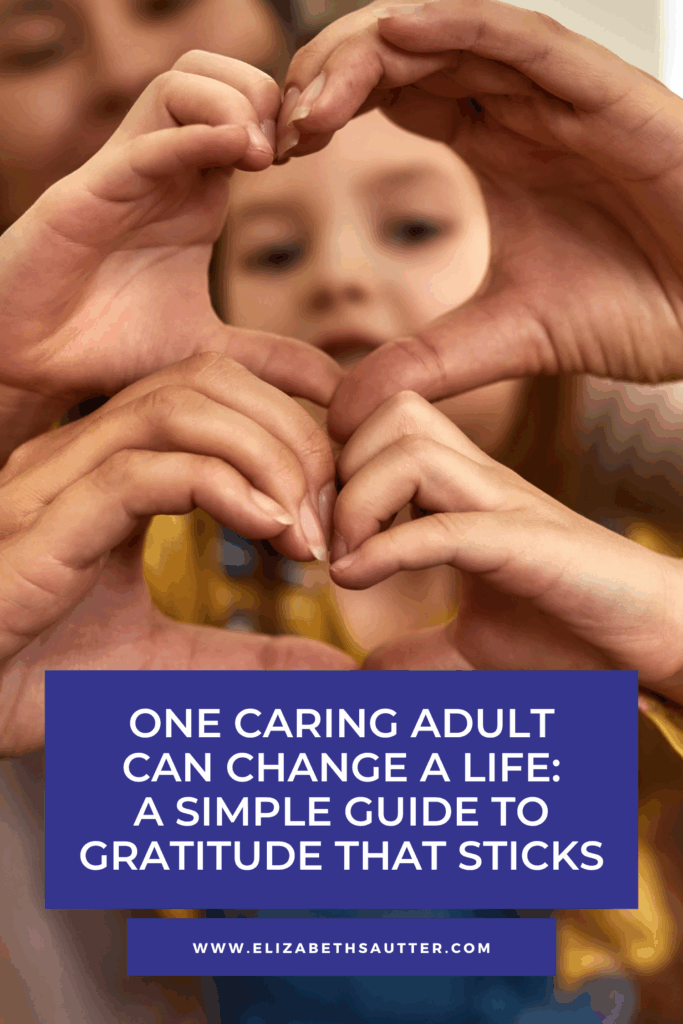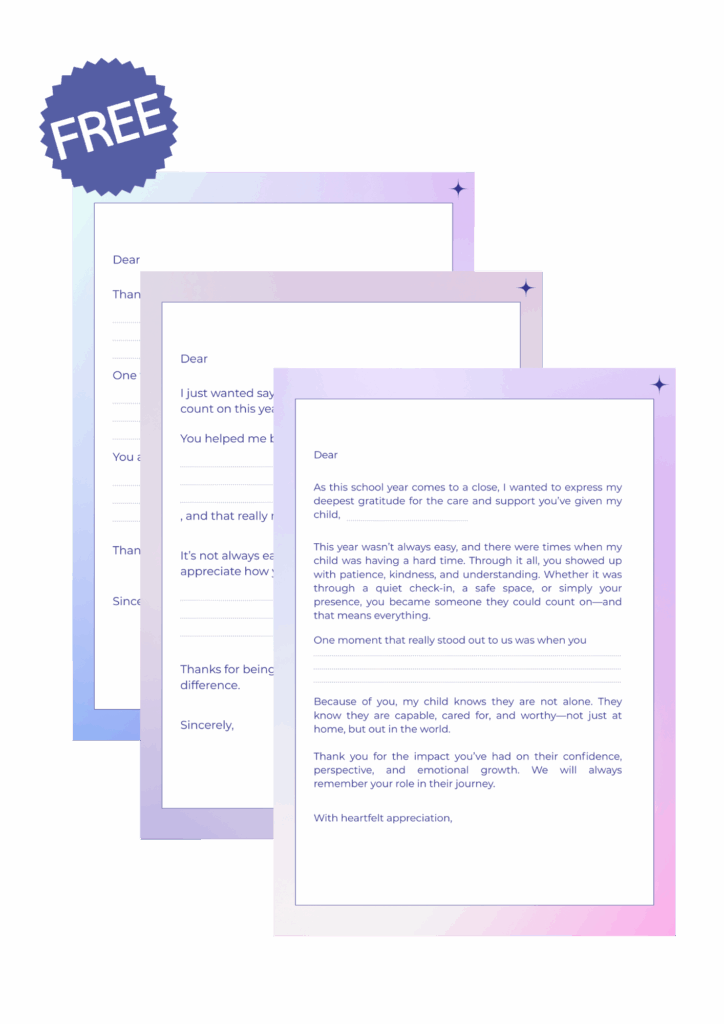Celebrate Teacher and Staff Appreciation Week with meaningful reflection and connection. Discover creative ways to help your child express thanks, build SEL skills, and download 3 printable thank-you letter templates for kids, teens, and parents.
Who’s the adult your child will never forget?
The one who saw them, supported them, and made them feel like they belonged—even when the day was hard?
During Teacher and Staff Appreciation Week, let’s help our kids reflect, connect, and say thank you in a way that sticks.
Why Every Child Needs a Trusted Adult in Their Learning Life
Whether your child is in school or learning at home, one thing remains the same—they thrive when they have a trusted adult who sees them for who they are and shows up for them with kindness and consistency. These are “their people,” and they play a vital role in helping our kids feel safe, worthy, and supported.
This person might be a teacher, but it could also be a custodian, resource specialist, coach, counselor, after-school leader, or homeschooling guide. Sometimes, it’s someone who checks in at just the right time. Other times, it’s someone who makes your child laugh, notices when they’re having a hard day, or simply treats them with dignity and respect.
A Personal Story: The Power of One Caring Adult
For my son, that person was Ms. Fruci, his resource teacher. He was having a hard time at school—feeling disconnected and unsure of where he belonged. Ms. Fruci became his person. She welcomed him into her classroom during lunch, gave him space to be himself, and reminded him through her actions that he mattered. That bond—the feeling of being accepted outside of family love—will stay with him forever.
My other son lit up whenever he saw Mr. Steve, the school custodian, during elementary school. Just a quick conversation could change his whole day. And now in high school, Mr. John, the support staff member who monitors the halls and helps with games, is a favorite among students. Yes, my son has been “caught” by him once or twice, but it was handled with respect and zero shame. Mr. John kept the connection intact—and that’s what our kids remember.
These stories aren’t just mine. They belong to so many families who have watched a child’s confidence grow because of one person who showed up, saw them, and made them feel like they belonged.
Gratitude Builds Real-Life Social and Emotional Skills
Helping kids recognize and thank the people who support them is more than a kind gesture—it’s a way to build emotional intelligence and executive functioning skills. When children take time to reflect and express gratitude, they’re also learning how to:
🧠 Understand other perspectives
💬 Communicate their thoughts and feelings
🌱 Build confidence in their voice and worth
🤝 Strengthen relationships and community
Simple Ways to Help Your Child Express Gratitude
You don’t need a grand plan to make appreciation meaningful. Try these simple, creative ways to reflect and give thanks:
🗣 Reflect in the Moment
Use natural times like dinner, bedtime, or car rides to ask:
- Who made you feel good at school today?
- What did someone do that helped you feel safe or included?
- Who would you like to say thank you to before the year ends?
🎨 Create Chalk Art or Posters
Use sidewalk chalk or poster boards to leave colorful messages of thanks around school, homeschool co-ops, or your neighborhood.
🍪 Bake a Favorite Treat Together
Cook or bake something your child loves, and deliver it with a note. Bonus: This builds sequencing and planning skills too!
🖍 Make Art
Draw pictures, make a card, or create a memory collage. Artistic kids often express feelings best through visuals.
💌 Write a Letter
Use the simple templates below to guide your child (or yourself!) in writing a meaningful thank-you note.
These flexible templates work for school settings, after-school activities, and homeschooling communities. Use them as-is or adapt them to your child’s voice.
Let’s Make It Stick 💛
In th rush of end-of-year events, it’s easy to focus only on logistics: the final project, the graduation photos, the thank-you gift. But underneath it all is something deeper: the relationships that helped shape who our kids are becoming.
Taking time to notice and honor those relationships is a powerful, teachable moment. One that builds connection, communication, confidence—and gratitude that truly sticks.


